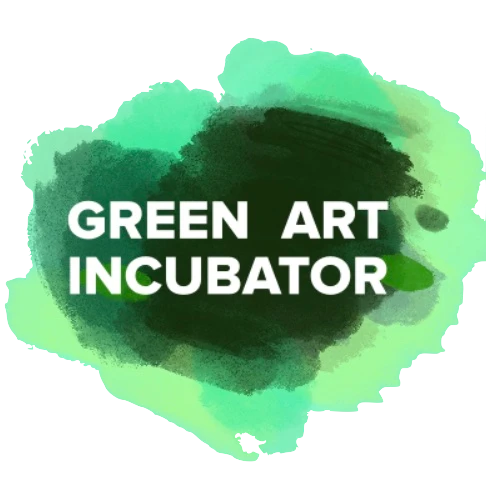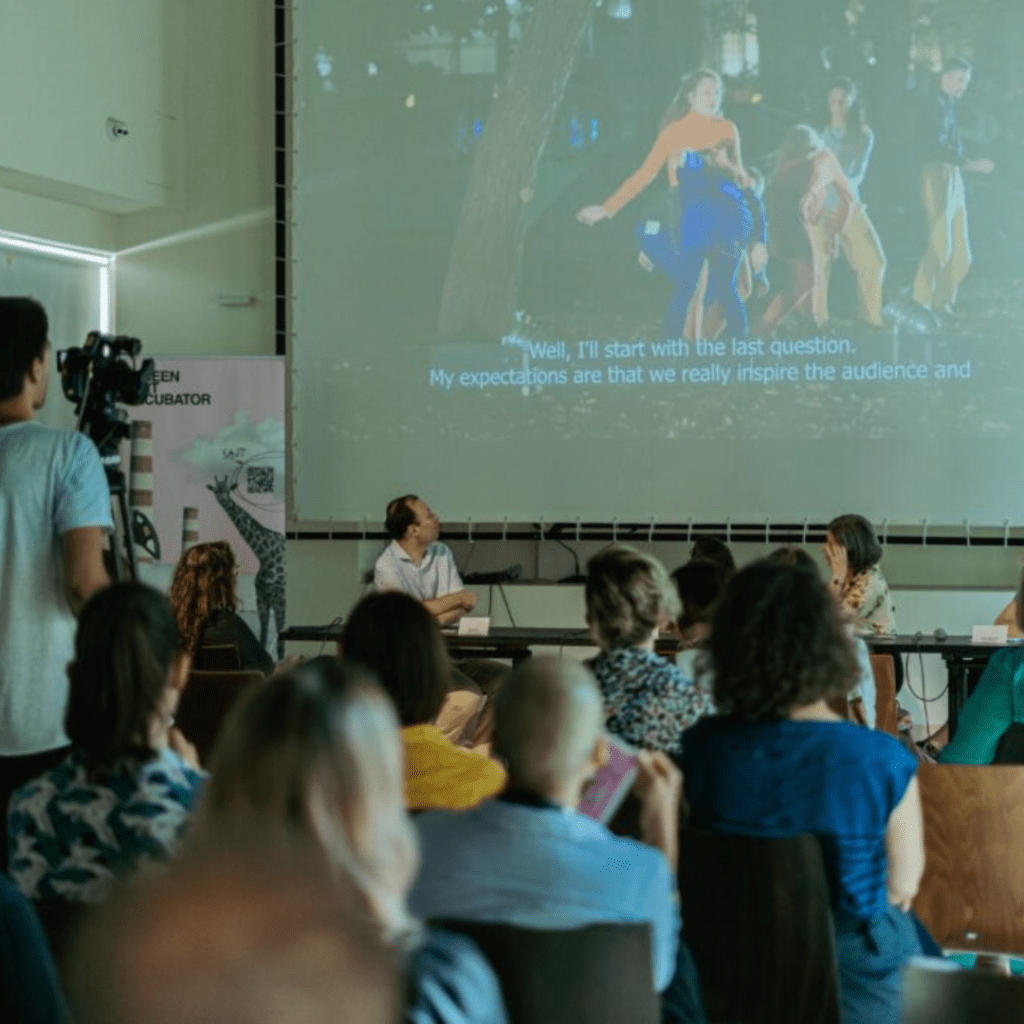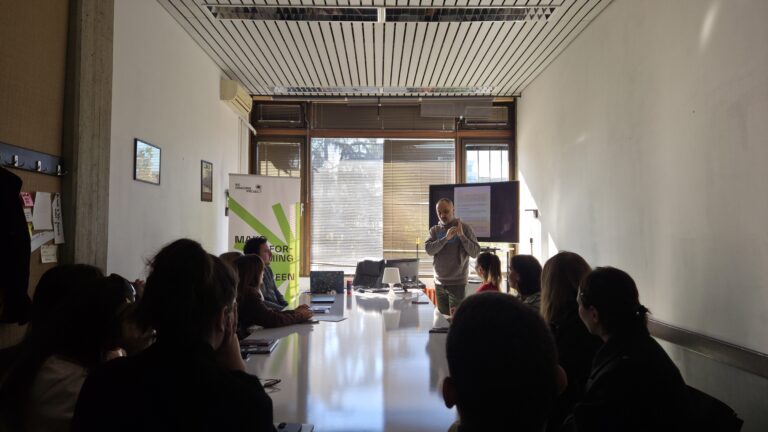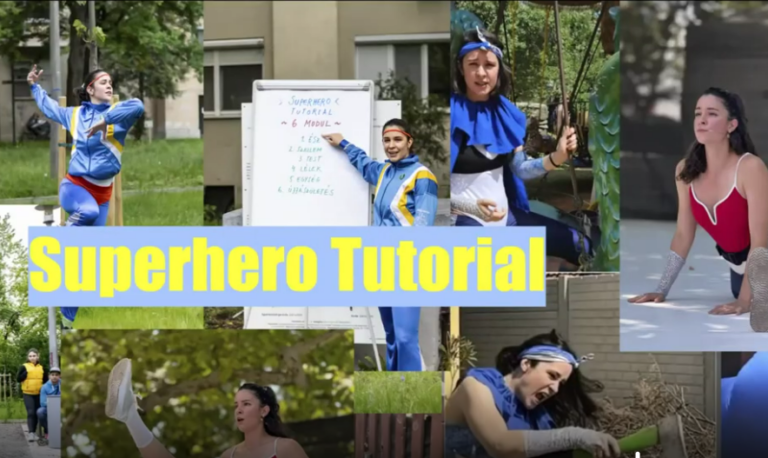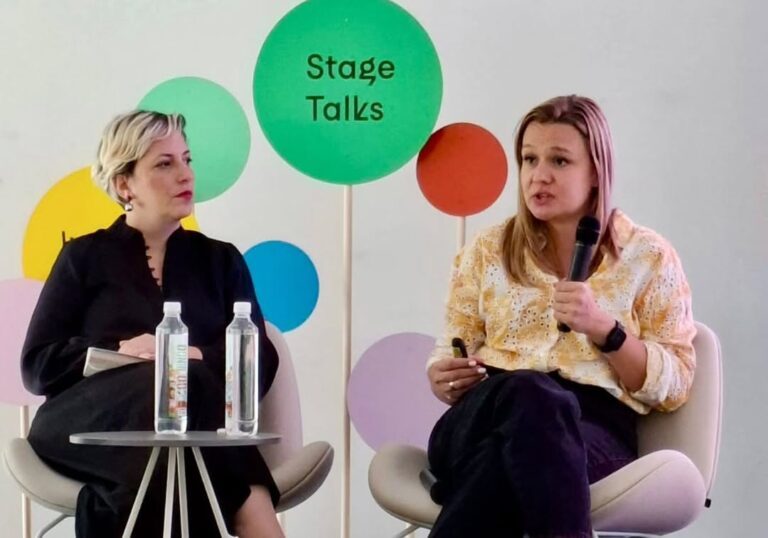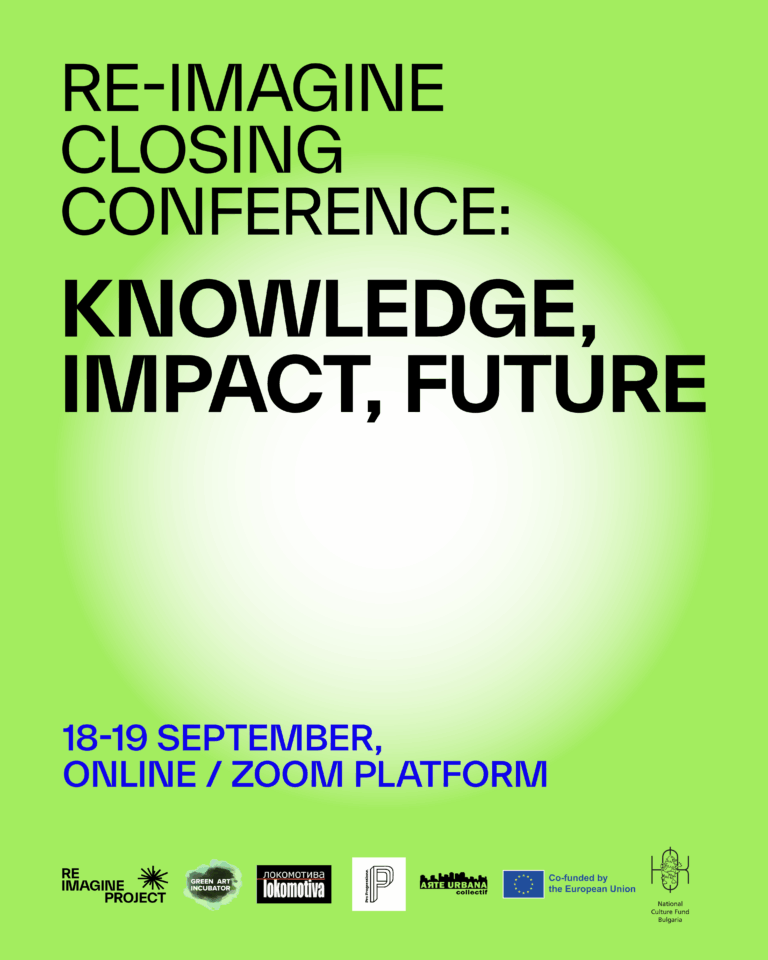The event featured presentations of past activities of the GAI initiative, two panel discussions, and an exclusive unveiling of unique green e-handbooks for the fields of theater, film, and visual arts.
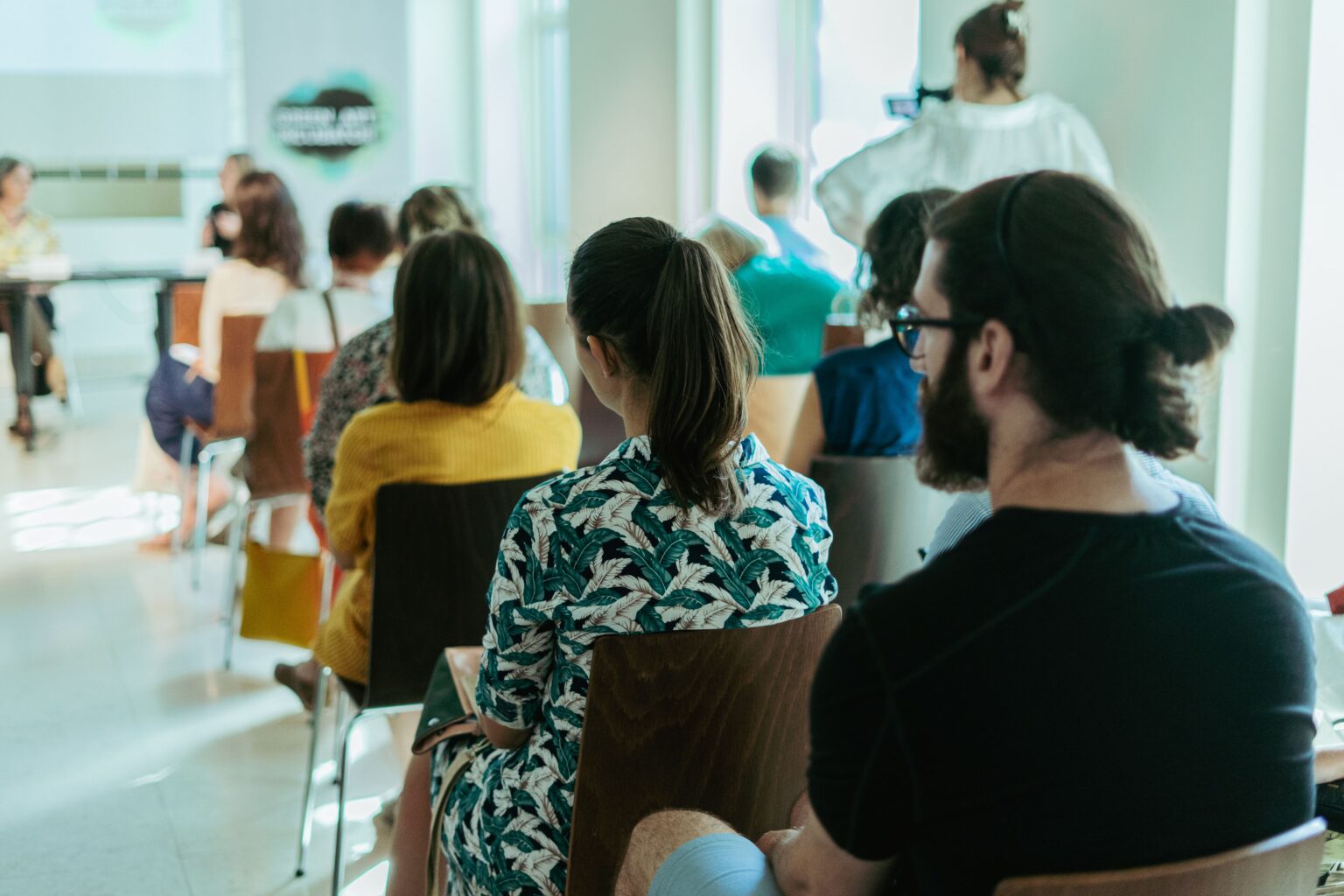
The first panel discussion, Green Transformation: Examples of Good Practice, brought together cultural experts and representatives of organizations whose projects have been implemented in accordance with green transition principles. Theatre director and co-founder of Dah Theater, Jadranka Anđelić, presented the project Drveće pleše dedicated to the importance of tree preservation, highlighting the significance of art in initiating dialogue on important social issues. Tijana Čolak-Antić Popović, Director of the Ethnographic Museum in Belgrade, discussed the organizational philosophy of the institution, focusing on measures for ecological sustainability being implemented, including an initiative to install solar panels and transition to renewable energy sources. Art historian, independent curator, and lecturer Zoran Erić explained the concept behind the exhibition Efekat pregleda held at the Museum of Contemporary Art in Belgrade, as the first exhibition in the region produced based on sustainability guidelines to reduce its carbon footprint.


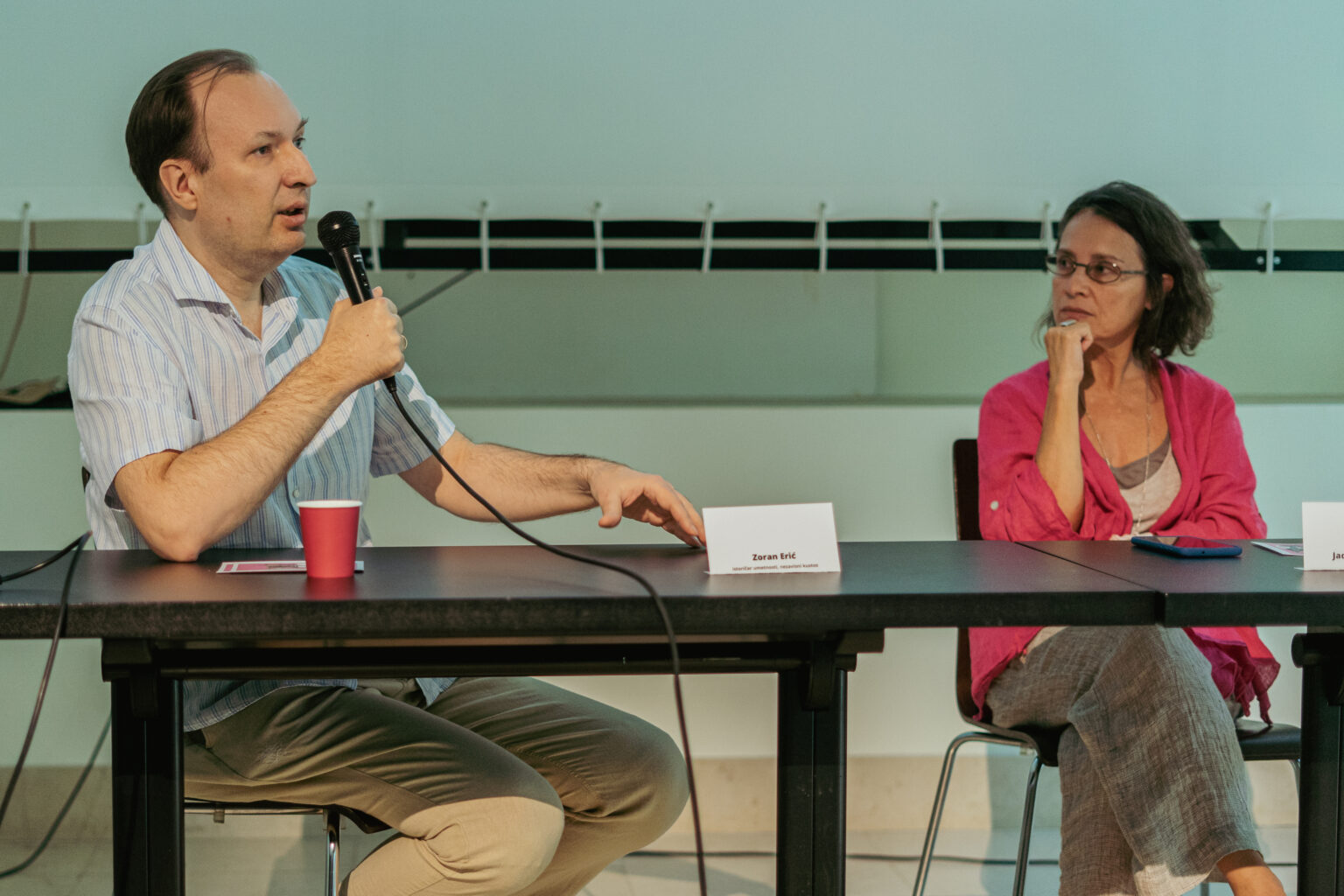
The second panel discussion, Culture and Climate Change: Opportunities for Transformative Policies, brought together experts in the fields of culture and environmental protection to discuss the possibilities of defining and implementing policies that will address the challenges we face in the context of the climate crisis. Participants included Professor Emerita of the University of Arts in Belgrade, Milena Dragićević Šešić, Program Manager for Environment and Climate Change at the EU Delegation in Serbia, Antoine Avignon, Professor at the Faculty of Physics, University of Belgrade, and co-founder of the GAI initiative Vladimir Đurđević, and Neven Marinović, co-founder of Smart Kolektiv. The discussion raised numerous questions about the impact of cultural production on nature and society, with all participants concluding the necessity of interdepartmental cooperation and the involvement of all societal actors in adapting to the new conditions brought about by the crisis we are facing.
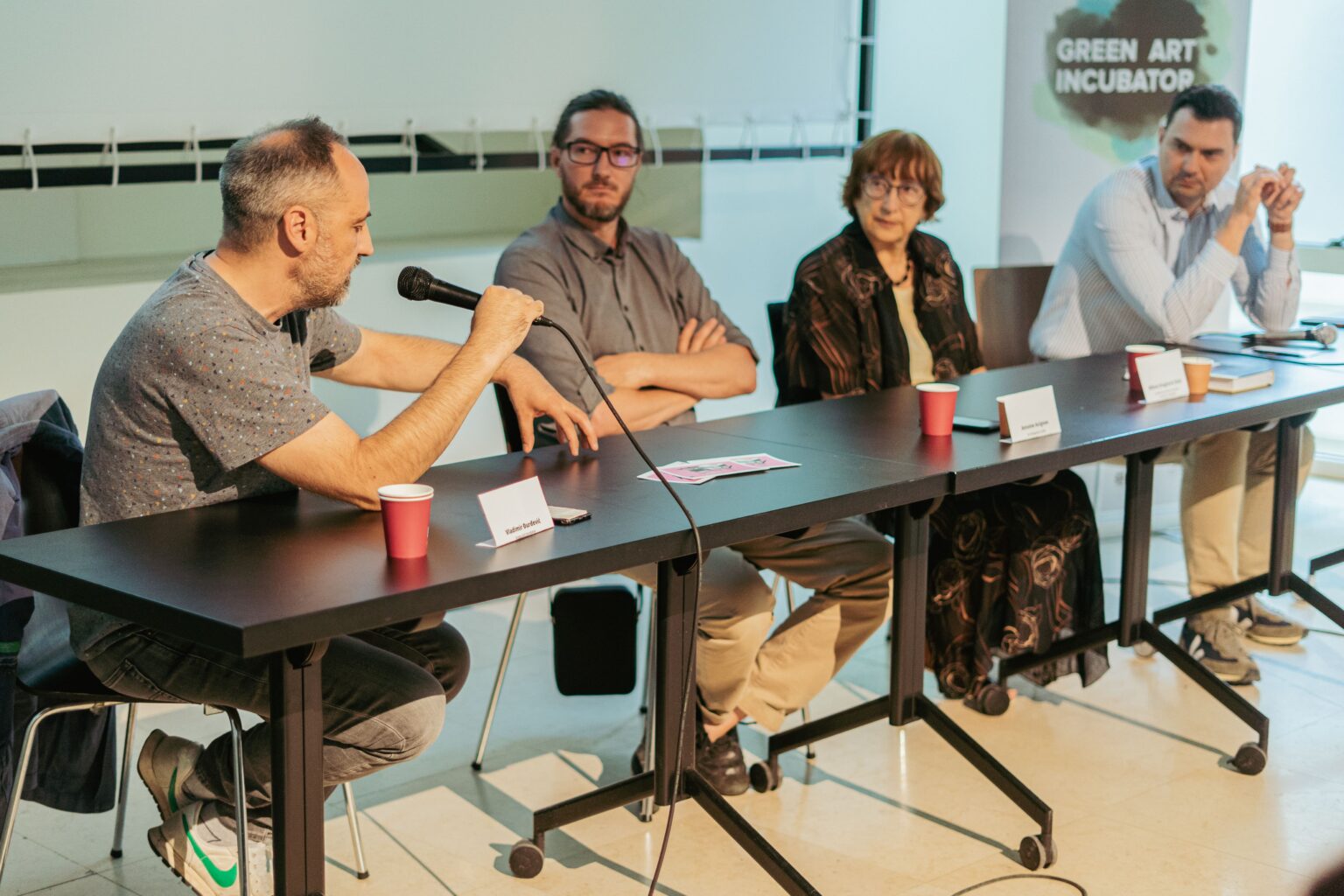
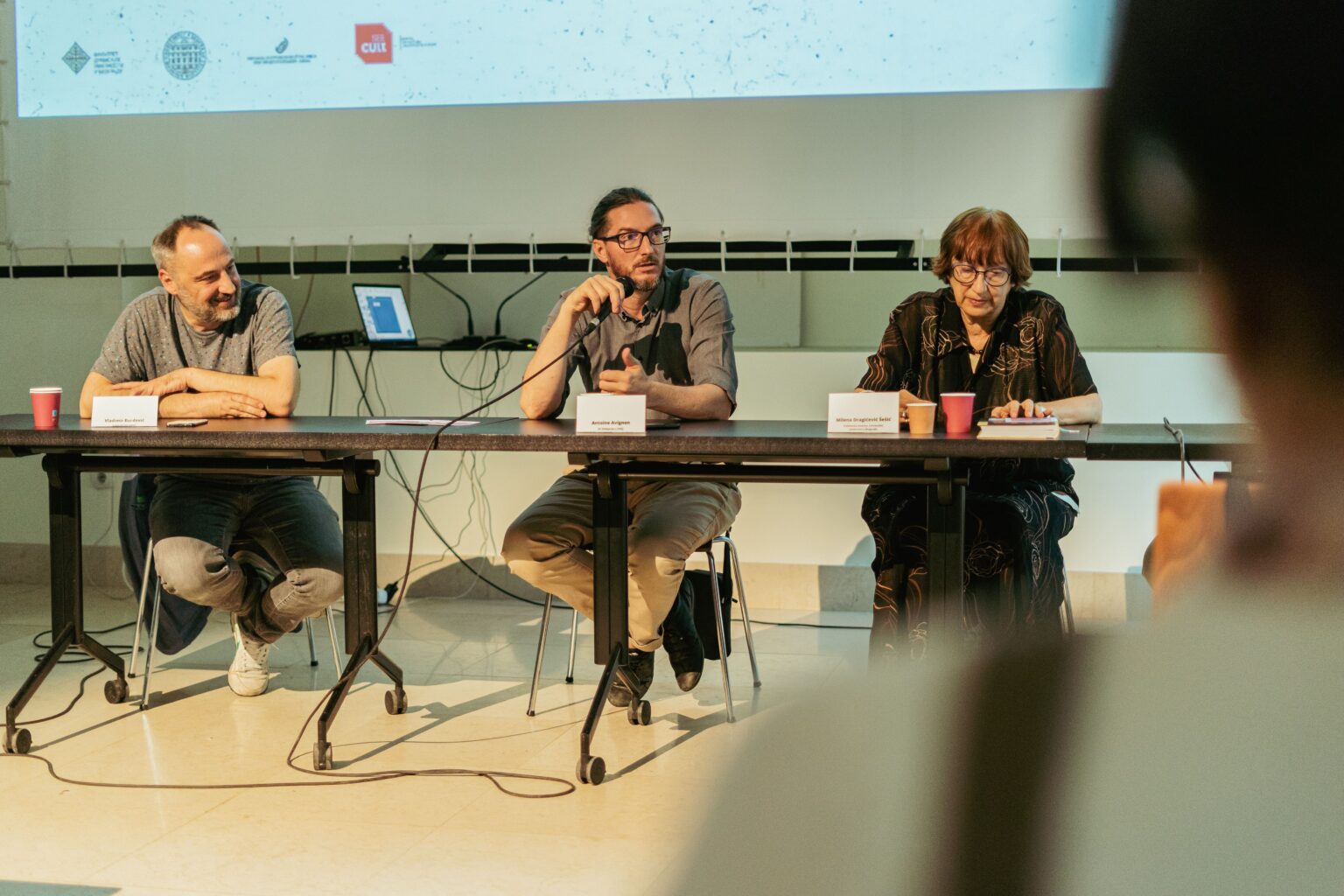
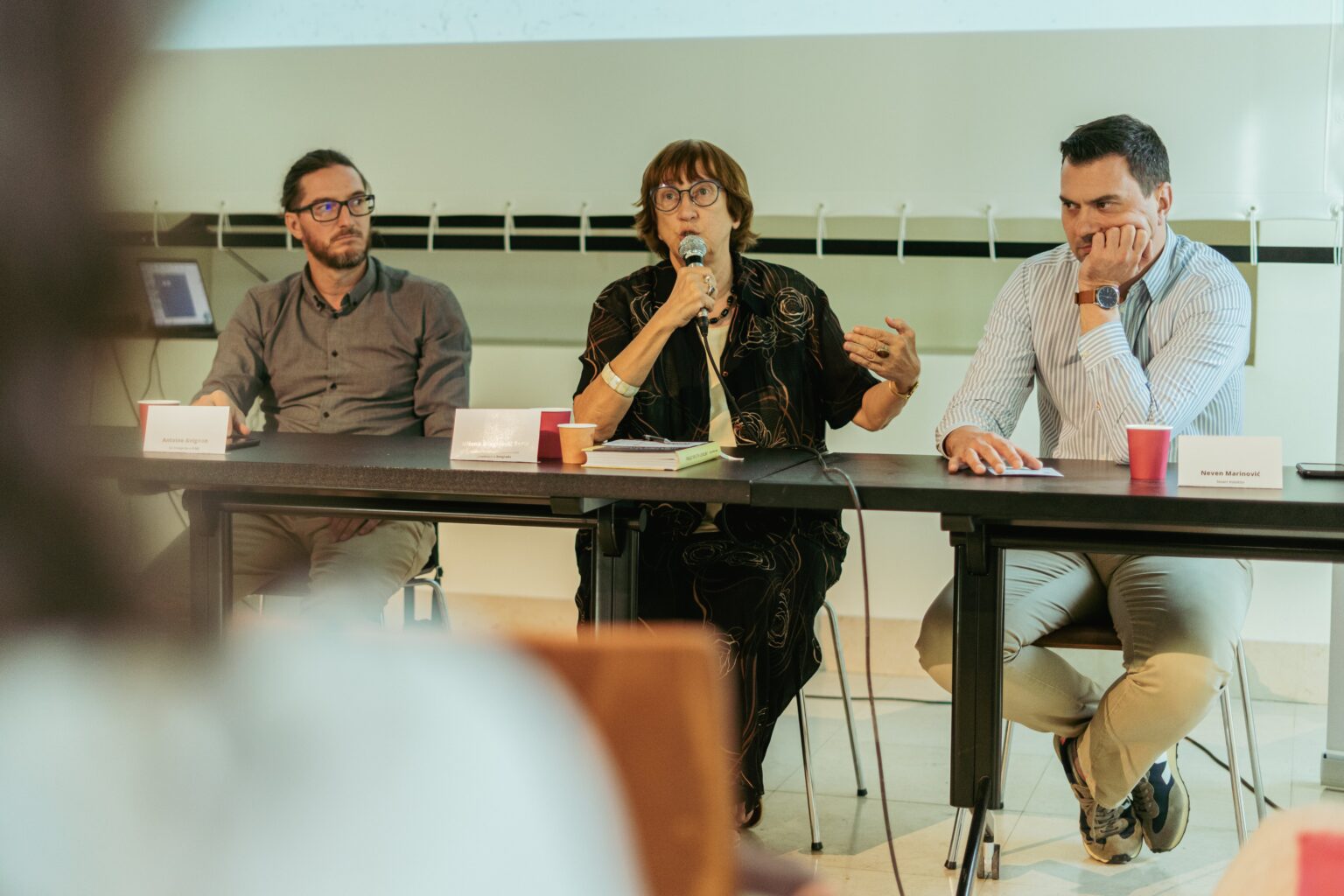
The audience also had an opportunity to get to know the Mustarinda association of artists and researchers, which works toward the ecological regeneration of society.
A recording of the event is available on our YouTube channel.
The conference was supported by the Open Society Foundation.
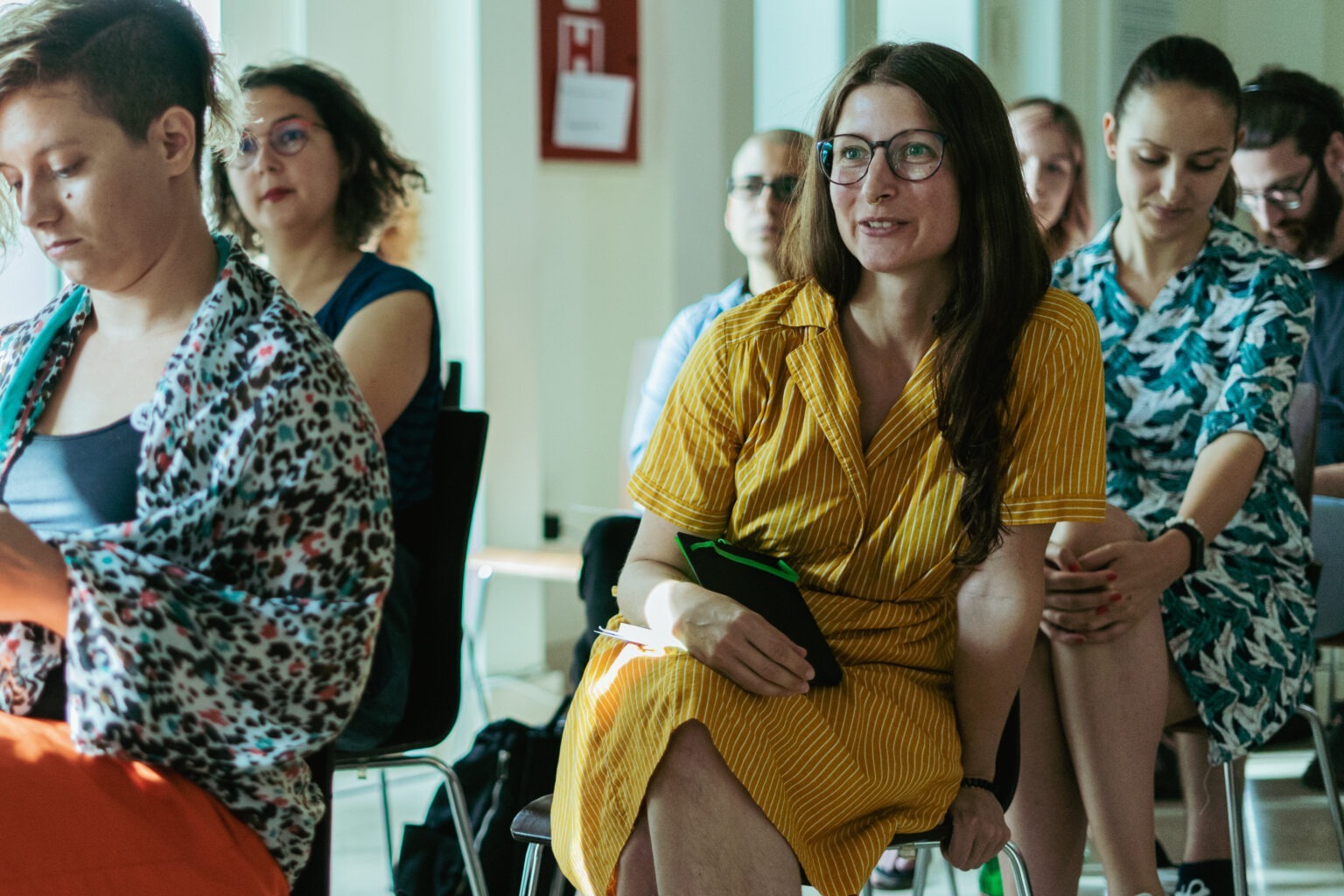
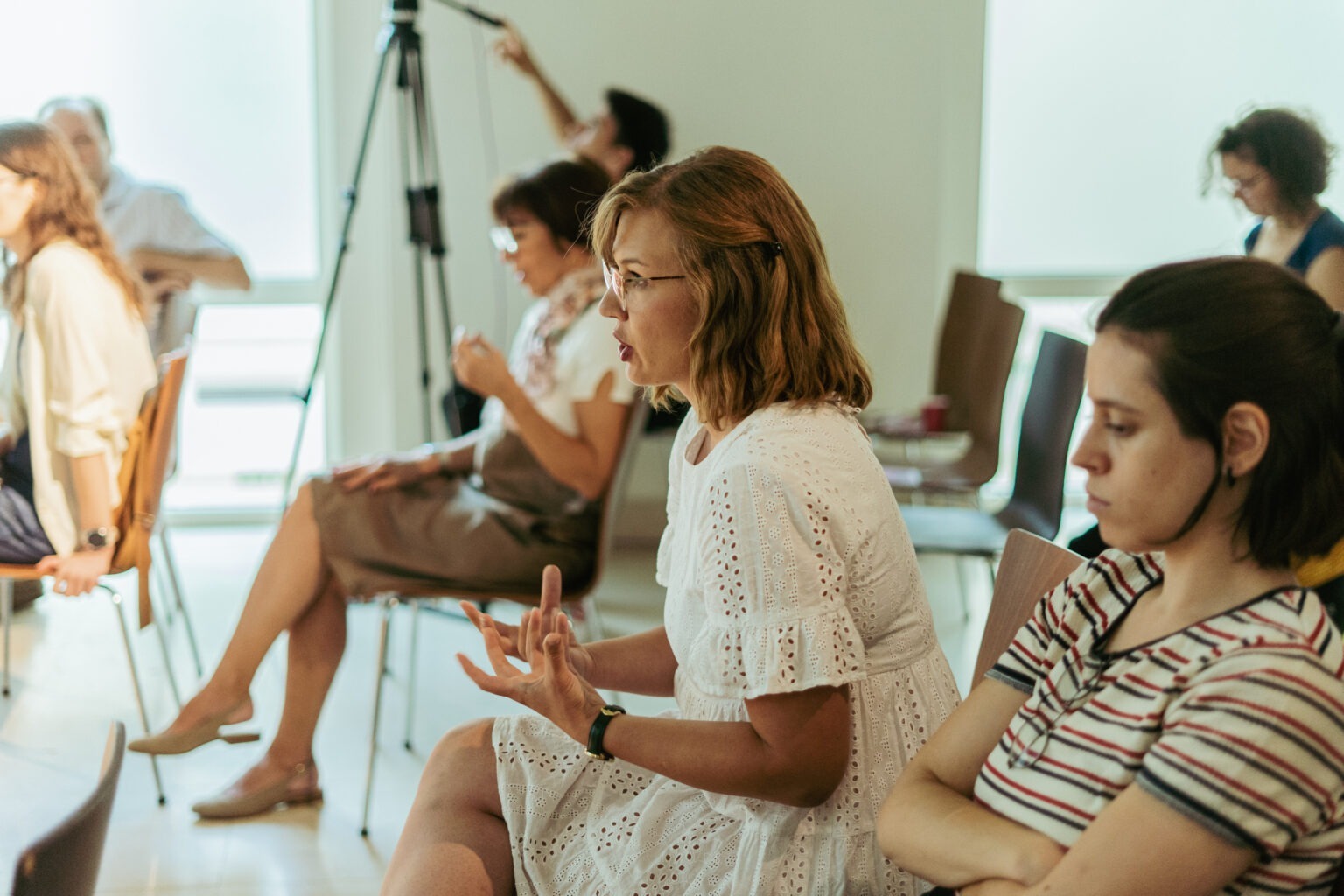
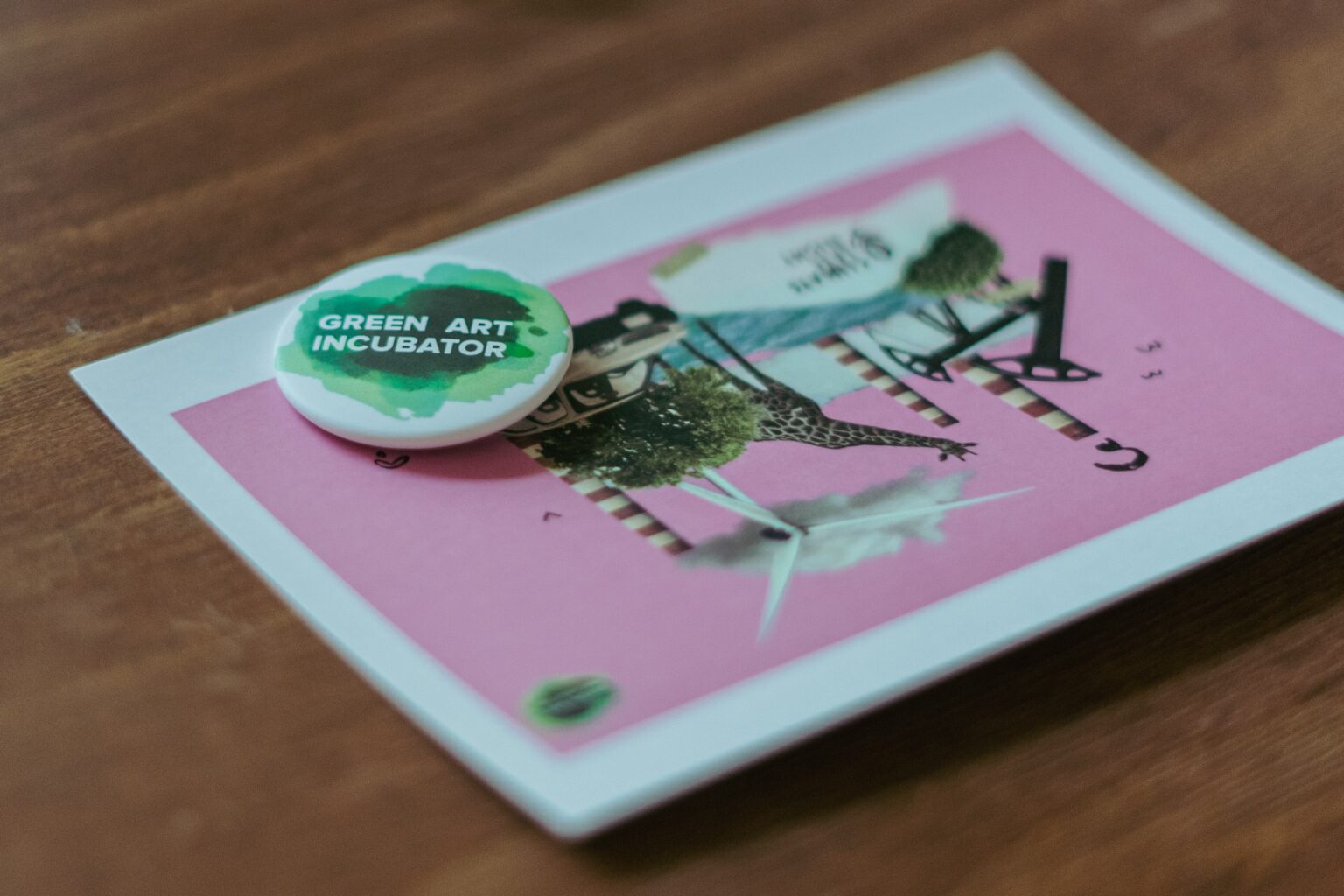
Photos: Tanja Drobnjak
